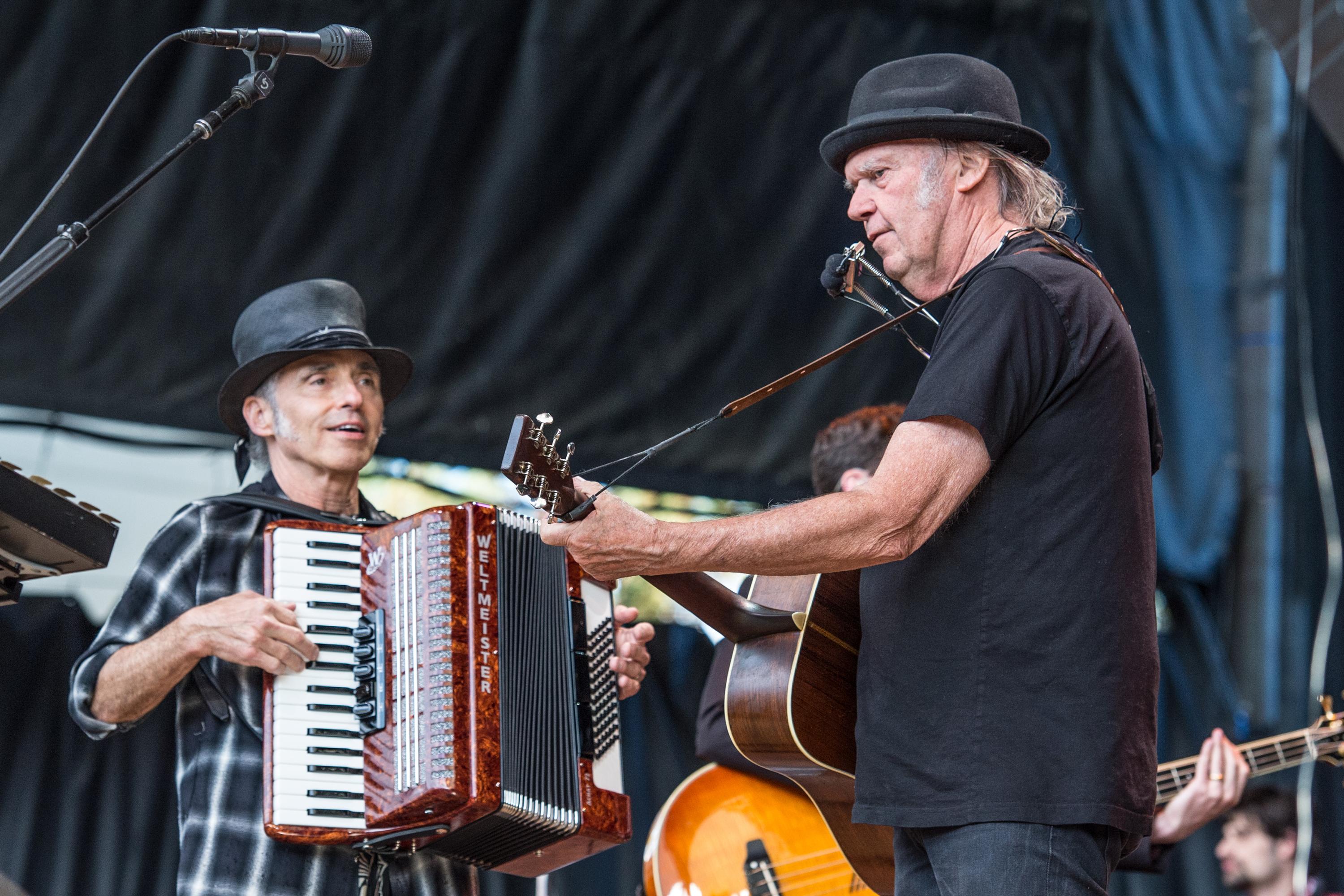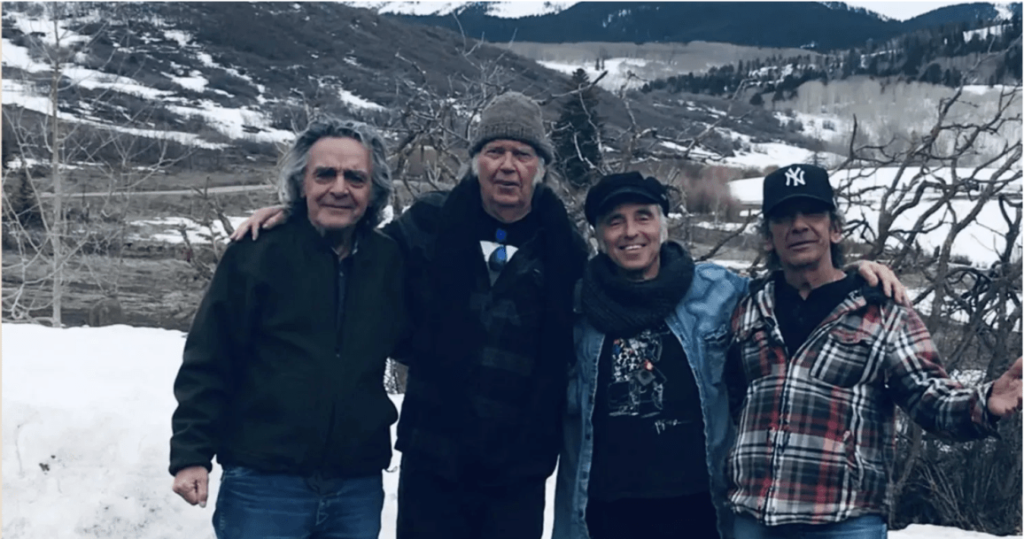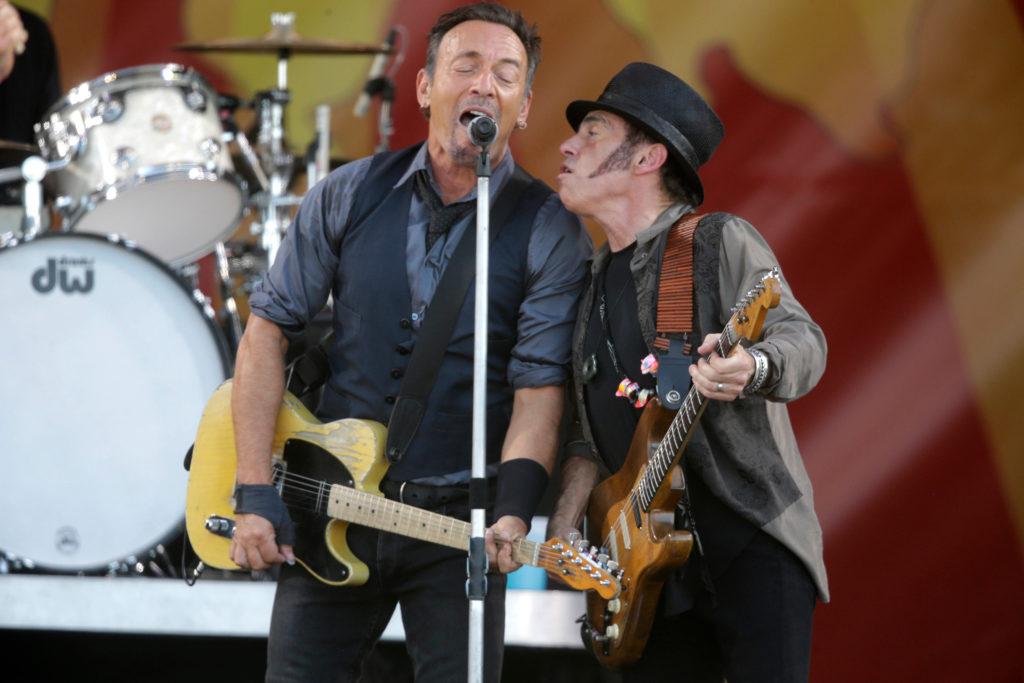
It’s been a big year for guitarist Nils Lofgren.
He reunited with Neil Young and Crazy Horse, the group he considers his “oldest musical family.” They met at the remote Studio in the Clouds near Telluride for a recording session. The resulting album, "Colorado," and its companion documentary, "Mountaintop," are out now.
Lofgren also released a new solo record this year, "Blue With Lou," which includes some songs he co-wrote with the late Lou Reed.
The Rock & Roll Hall of Famer is celebrating 50 years in music. His career took off when Neil Young gave him his first big break, inviting a teenaged Lofgren to sit in on the recording of "After The Gold Rush." Fans also know him for his work with Bruce Springsteen, which dates back to 1984 when he joined the E Street Band.
“When I started 50 years ago when I was 17, I would’ve never been this greedy,” Lofgren said. “To think I’d be playing in all these great bands, and have such a great career and get to play with so many people.”
Lofgren spoke with Colorado Matters host Ryan Warner about the new album from Neil Young and Crazy Horse, his affection for Telluride, and a memorable music career.

Interview Highlights
On first meeting Neil Young in 1968:
"I was 17 and freshly on the road with my band Grin in 1968, not knowing what I was doing. I would sneak backstage a lot and ask for advice. I went to see Neil Young and Crazy Horse on their very first tour. I walked in on their dressing room at the Cellar Door in Washington D.C. Neil handed me a guitar, let me sing some songs I'd written. To my surprise he said, 'Why don't you hang out with us for a couple of days?' He got me a cheeseburger and a Coke and a table to watch four great shows over two nights. We stayed in touch via the phone. My band was on our way to Los Angeles and he said, 'Look me up when you get there.' And true to his word, he took me under his wing and it’s led to a lot of chapters in the last 50 years."
On recording at Studio in the Clouds in Telluride:
"I think it … brought a comfort level certainly to Neil because he just took a drive from him and Daryl [Hannah]'s home. The studio literally in the clouds, the beautiful scenery, the mountains of Colorado, the big herds of animals coming across the street, beautiful sunsets. I forget, it was called a pink moon or something. No matter what we were doing, we’d usually stop and go out for 20 minutes and just watch the sunset, watch the moon come up. There's something about that open space and the clean air, all beautiful wood studio, a lot of ancient instruments everywhere. And of course, you know the crux of it all, 50 year old friends and great musicians that I've gotten to work with on and off through the decades."
On "Mountaintop," the making-of documentary for "Colorado"
"Neil wanted people to see what actually happened... not polish it all up nice and smooth, which has been Neil from the day I met him. Very honest and sincere, and of course editing yourself you're free to paint whatever picture you want. I thought it was very courageous for him. Now I have not seen the movie. I've seen the trailer. But as he put it to me personally, he said, 'I'm you know, I'm kind of a jerk a lot of the times.' He was kind of amazed, and all the years I've worked with Neil, I never saw it that way.
I just saw it as an impatience where you show up with these great songs ... the singer's ready, you have the band... and then you run into obstacles. We tried to record live where Neil sang through a PA and we all played in the room. Everything was leaking into each other. Most of the times we tried not to use headsets, just like playing in a bar. But you know, logistically that's not that easy song to song to set up. So sometimes [in the film] you're going to see the impatience and frustrations and realize it's not all fun and games."

On Neil Young versus Bruce Springsteen as band leaders:
"There's a lot more similarities between Neil and Bruce than there are differences. You've got two of our greatest writers in history and they both really give their bands freedom. They surround themselves with musicians that they trust, that understand their music. A lot of times they won't even suggest an instrument. They'll just let you pick up what you're hearing and want to hear your input first. It's just a natural feel with both of them and there's plenty of room for being loose and being a little reckless. In fact, they kind of prefer that. In general, neither one of them really like the over-rehearsed or over-produced stuff. Even in the studio, they're looking for something more immediate and emotional."







